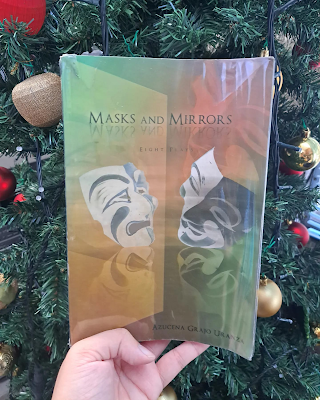 The Praise Singer by Mary Renault
The Praise Singer by Mary RenaultMy rating: 4 of 5 stars
"We look for music, first in the heavens, then on earth in the laws of its creatures, chiefly in man; in himself; in his dealings with his fellows, in his body politic."
Again I entered a time travel machine to Ancient Greece by cracking open a Mary Renault. While this stand-alone novel wasn't quite on the same plane as the incredible THE MASK OF APOLLO (about the actor Nikeratos and his firsthand account of how Plato tried to teach Dionysios how to rule Syracuse) nor THE LAST OF THE WINE (about Alcibiades, Socrates and the Thirty Tyrants), it still bears the Renault stamp of excellence. Renault is formidably gifted as both storyteller and scholar, and no one entertains and educates quite like her.
To my mind, these three stand-alone novels form a separate trilogy, different from her Theseus novels, and her famous trilogy on Alexander the Great. I admire how she analyzes the push and pull between monarchy, oligarchy, and democracy in each of these three novels, while simultaneously immersing us in the daily life of different city states.
THE PRAISE SINGER was written last of these three, and features a similar frame narrative of rendering a specific generation's experiment that we continue today, 2500 years from the novel's setting. It's the grand experiment called politics, that mystery of which type of government would best allow men to live freely, as befits the dignity of free citizens.
In TPS, Renault chose Simonides as her protagonist, the poet best known for the epigram “Go tell the Spartans…”
The city in focus? Athens, the center of the world, she who attracted the best poets but was also home to the Peisistratids, a family of tyrants in a time when the word did not yet carry the negative connotation it does today.
"It seems to me there is law here, and justice too."
"Truly. While the Tyrant consents. He is still a man with a spear while we have none."
It’s so easy to label men as good or bad when reading a one-paragraph summary of their lives in encyclopedias. But what Renault does best is show how multifaceted we all are, shining her light on tyrants and thralls, kings and slaves alike.
In this book we see how a father brought justice to his land, and brought forth two similarly minded sons who ruled generously at first, but were corrupted over time, and ultimately laid low by lust run afoul.
The ending proved surprising, as her previous novels had me expecting a lengthy summary. “That’s it?” I shouted at the book, disappointed at having finished possibly the third to the last Renault. Two more to go. This is, then, the twin joy and pain of having sought out a favorite author's books.
Thank Zeus for rereading! Renault is top tier writing, regardless of genre, and the world is better for having her books in it.
View all my reviews






